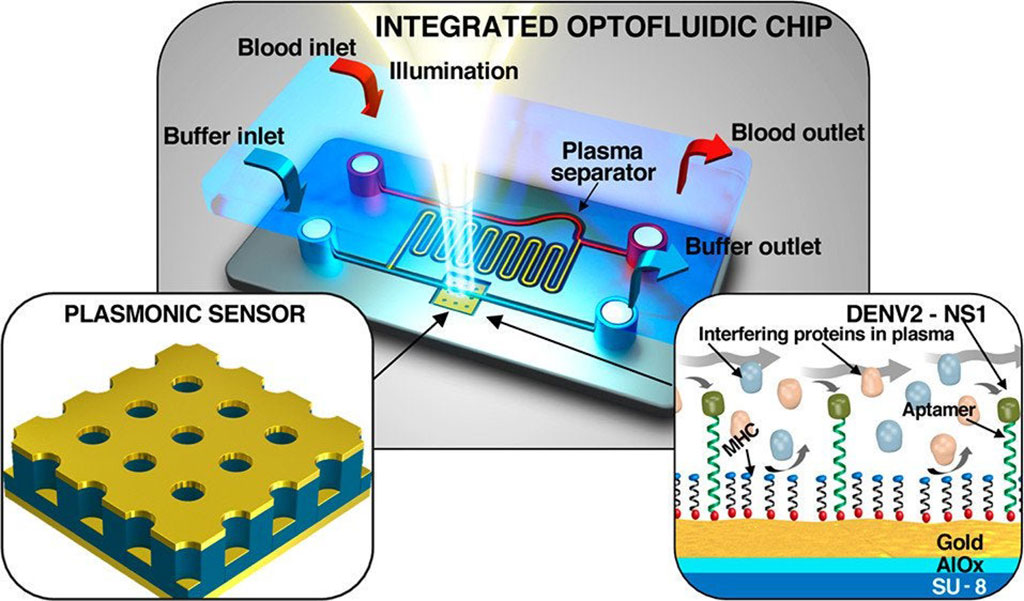Rapid, Highly Accurate Test Developed to Detect Viruses
By LabMedica International staff writers
Posted on 16 Dec 2021
The rapid spread of viral infections demands early detection strategies to minimize proliferation of the disease. A device has been developed that detects viruses in the body as fast as and more accurately than current, commonly used rapid detection tests.Posted on 16 Dec 2021
The optical sensor device uses nanotechnology to accurately identify viruses in seconds from blood samples. The device works by using nano-scale patterns of gold that reflect back the signature of the virus it is set to detect in a sample of blood. Different viruses can be detected by using different DNA sequences that selectively target specific viruses.

Image: Schematic diagram of the Plasmonic Biosensor that detects virus biomarkers from the blood (Photo courtesy of University of Central Florida)
Bioengineers from the University of Central Florida (Orlando, FL, USA), who developed the device, demonstrated a plasmonic biosensor to detect Dengue virus, a mosquito transmitted pathogen that causes Dengue fever, which was chosen as a model, via its nonstructural protein NS1 biomarker. The sensor is functionalized with a synthetic single-stranded DNA oligonucleotide and provides high affinity toward NS1 protein present in the virus genome.
The scientist reported that the device can tell with 95% accuracy if someone has a virus, a significant improvement over current rapid tests that experts warn could have low accuracy. Testing for viruses is important for early treatment and to help stop their spread. They demonstrated the detection of NS1 protein at a concentration of 0.1–10 μg/mL in bovine blood using an on-chip microfluidic plasma separator integrated with the plasmonic sensor which covers the clinical threshold of 0.6 μg/mL of high risk of developing Dengue hemorrhagic fever. The device closely matches the accuracy of the gold-standard PCR-based tests, but with nearly instantaneous results instead of results that take several days to receive.
Debashis Chanda, PhD, a Professor of Nanoscience Technology and senior author of the study, said, “The sensitive optical sensor, along with the rapid fabrication approach used in this work, promises the translation of this promising technology to any virus detection including COVID-19 and its mutations with high degree of specificity and accuracy. We have demonstrated a credible technique which combines PCR-like genetic coding and optics on a chip for accurate virus detection directly from blood.”
The authors concluded that the conceptual and practical demonstration shows the translation feasibility of these microfluidic optical biosensors for early detection of a wide range of viral infections, providing a rapid clinical diagnosis of infectious diseases directly from minimally processed biological samples at point of care locations. The study was originally published on September 8, 2021 in the journal Nano Letters.
Related Links:
University of Central Florida













